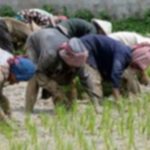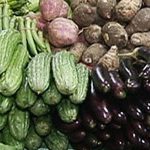INILAHAD ng isang organisasyon ng mga magsasaka, ang Philippine Maize Federation (PhilMaize) kamakailan na ang pinakahuling pahayag ng isang miyembro ng economic team ay hindi sumasalamin ng reyalidad sa sektor ng agrikultura.
“I can’t help but comment (on) the recent pronouncement of our economist(s) in the cabinet as this does not reflect what is on the ground,” sabi ni PhilMaize president Roger Navarro.
“We are a nation that mostly eat rice and a little bit of corn. We cannot abandon growing in favor of importing it,” dagdag niya.
Binanggit ni Navarro na noong 2007 hanggang 2008, may pera ang Filipinas para makapag-import ng bigas pero mayroon pa ring pagkukulang. Sinabi niya na nangyari ito dahil ayaw magbenta ng mga nag-eexport na bansa. “Then (the) price (of rice) went up to the ceiling. We don’t want a repeat (of that),” aniya.
Nauna nang ipinahayag ni Budget and Management Secretary Benjamin Diokno na kung nagpalago ang agriculture sector sa kanilang potensiyal na 4 porsiyento noong 2018, naabot sana ang full-year economic growth na 6.5 porsiyento, katumbas ang “low-end of our revised growth target last year.”
“Looking at 2018 Gross Domestic Product (GDP) growth by industrial origin, the agriculture sector contributed a measly 0.1 percentage point to the full-year growth rate of 6.2 percent. Simply put, the farm sector had virtually zero contribution to economic growth last year,” dagdag pa nito.
Sinabi ni Diokno na ang mahinang agriculture growth at ang mataas na inflation noong nagdaang taon ay naglabas ng kahinaan ng farm sector.
Kasalukuyang nirerepaso ng DBM ang pag-aaral ng mga eksperto sa agrikultura sa pagsisikap na humanap ng paraan na mapabuti ang resource allocation sa farm sector.
“One recommendation by the Organization for Economic Cooperation and Development (OECD), for instance, is to direct more resources in improving supply-chain connectivity (e.g. farm-to-market roads and other infrastructure) and focusing on agricultural research and extension services. This leads to long-term productivity gains as opposed to emphasizing input subsidies (e.g. fertiliz-ers, seeds),” ani pa niya.
Sinabi ni Diokno na ang economic team ay makikipag-ugnayan sa concerned agencies, lalo na sa Department of Agriculture (DA) at sa National Economic and Development Authority (NEDA).
“Once ready, we will share our findings in hopes of reversing the poor performance of agriculture. This will take a holistic ap-proach, both in policy formulation and program implementation,” aniya.
“Rest assured that the DBM will continue to play its part in ensuring that resources are allocated to most beneficial and most ef-ficient purposes,” dagdag pa nito.
Sa kabilang banda, sinabi ni Navarro na ang hepe ng DBM “should calibrate his pronouncement as if they knew everything.”
“They (economic team) are just in their table planning for us in the field. They don’t even know if their words inspire or hurts farmers’ feelings,” sabi ni Diokno. PNA










Comments are closed.